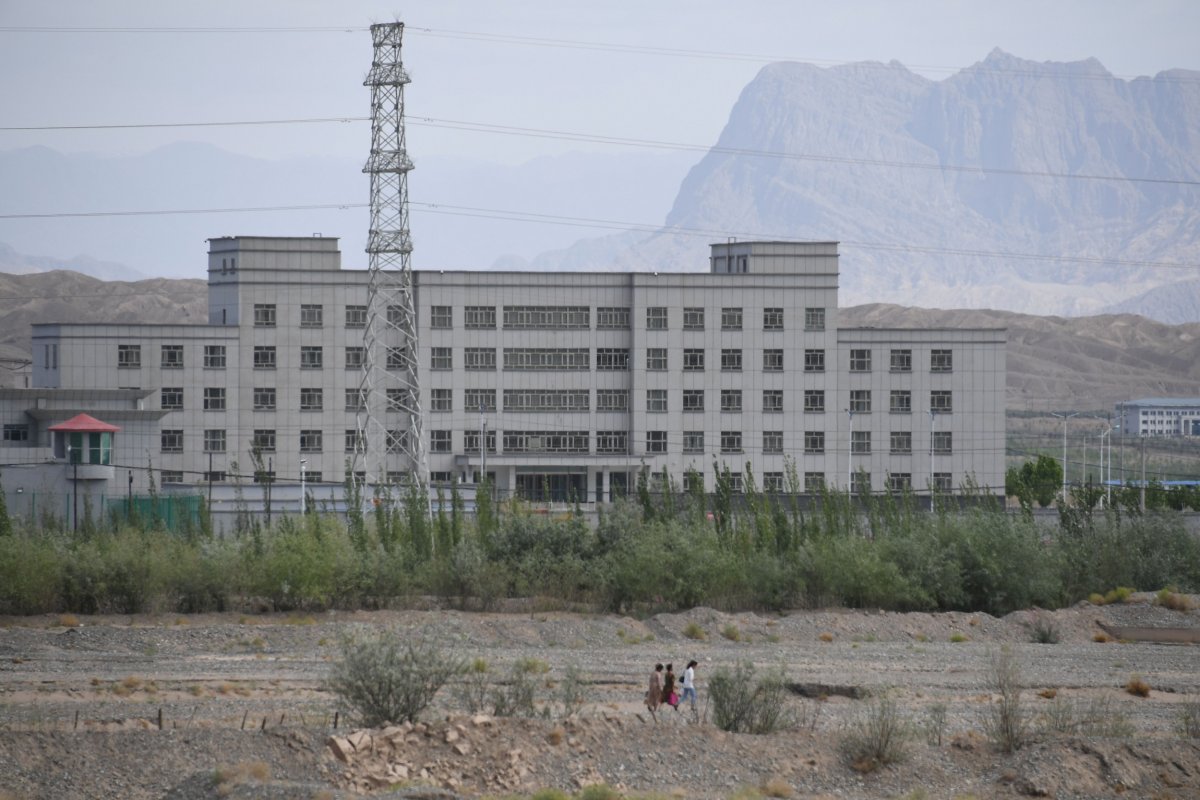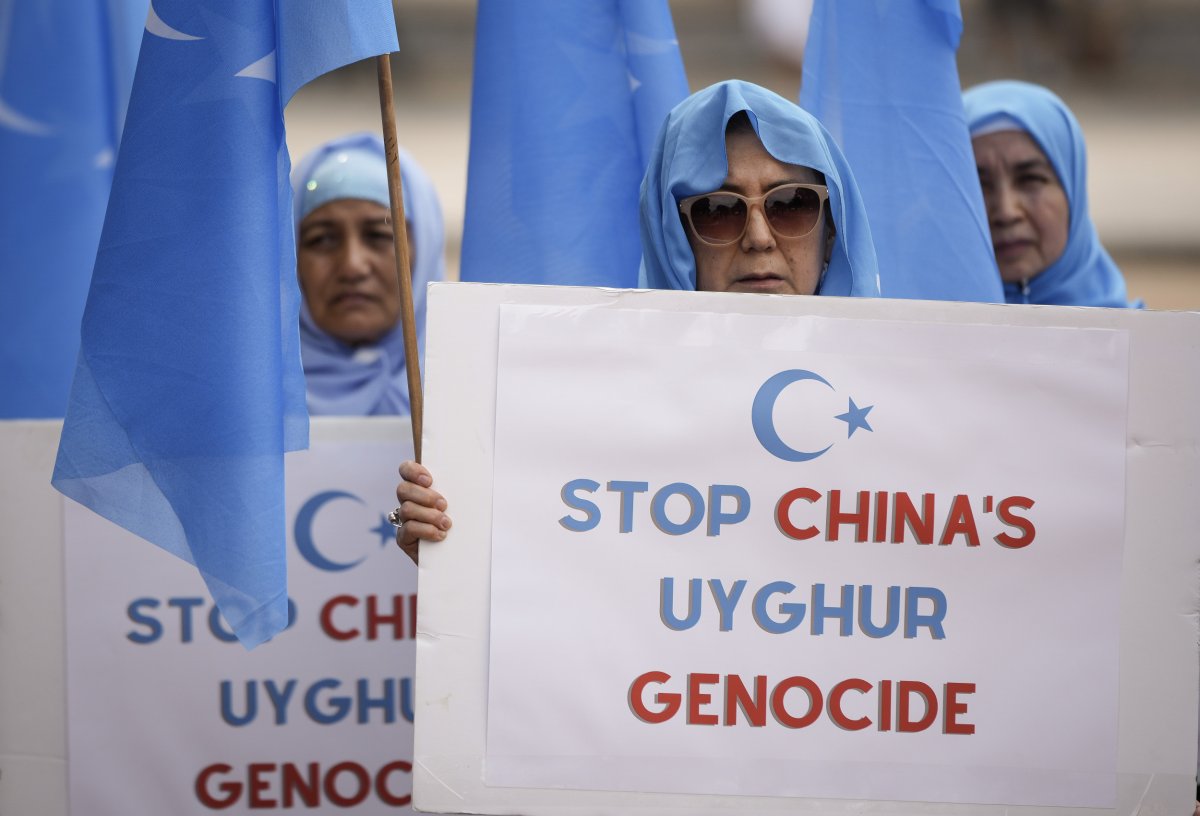A special report commissioned by a United Nations office said it was "reasonable to conclude" that Uyghurs and other ethnic minorities in China were the victims of stated-backed forced labor and other forms of inhumane treatment.
The Chinese government's policies in its northwestern region of Xinjiang have been the subject of international scrutiny for several years. More than a million Muslims, mainly Uyghurs, have been systematically detained in so-called "reeducation" centers for over a half a decade, research suggests. Instances of forced or coerced labor as part of this process have added to concerns in the West and galvanized countries including the United States to legislate against the abuse.
Beijing, which previously denied the existence of such facilities, later said they were created for the purposes of counterterrorism and deradicalization of religious extremists in Xinjiang. In 2020, China's top envoy in London said the centers were "in line with the principles and the spirit" of documents produced by the UN. Concerns about forced labor were a misunderstanding of its poverty alleviation measures, the government said.
The latest report, made available on Tuesday by Tomoya Obokata, special rapporteur on contemporary forms of slavery for the UN Human Rights Council, concluded that forced labor among Uyghurs, Kazakhs and other ethnic minorities "in sectors such as agriculture and manufacturing" has been occurring in Xinjiang.
Obokata noted the existence of two state-mandated systems: a "vocational skills education and training center system, under which minorities are detained and subjected to work placements"; as well as a "poverty alleviation through labor transfer system, where surplus rural laborers are transferred into secondary or tertiary sector work."

"Similar arrangements have also been identified in the Tibet Autonomous Region, where an extensive labor transfer program has shifted mainly farmers, herders and other rural workers into low-skilled and low-paid employment," according to the findings, which Obokata said was based on "submissions by stakeholders, independent academic research, open sources, testimonies of victims, consultations with stakeholders, and accounts provided by the [Chinese] Government."
"While these programs may create employment opportunities for minorities and enhance their incomes, as claimed by the Government, the Special Rapporteur considers that indicators of forced labor pointing to the involuntary nature of work rendered by affected communities have been present in many cases," the report said.
"Further, given the nature and extent of powers exercised over affected workers during forced labor, including excessive surveillance, abusive living and working conditions, restriction of movement through internment, threats, physical and/or sexual violence and other inhuman or degrading treatment, some instances may amount to enslavement as a crime against humanity, meriting a further independent analysis," it said.
Obokata, who put out a call for input in February, published the report ahead of the 51st session of the Human Rights Council, which will sit from September 12 to October 7. The document also covered contemporary forms of slavery affecting "ethnic, religious and linguistic minority communities" in other parts of the world, as well as its causes.
State-sponsored discrimination was among the causes of modern slavery, the report found, while social inequality, to include income gaps in countries like the U.S., made minorities more vulnerable to exploitation, it said.

German researcher Adrian Zenz, sanctioned by Beijing for his work studying the repression of Uyghurs in Xinjiang, called Obokata's report "an extremely significant and strong assessment." The document cited a number of studies by Zenz, who is a senior fellow in China studies at the Victims of Communism Memorial Foundation in Washington, D.C.
Zenz said the report's timing was "quite sensitive" in light of China's recent ratification of International Labour Organization conventions forbidding forced labor.
ILO convention No. 105, which Zenz said prohibits state-sponsored forced labor "for political aims and economic development," was among the key legal instruments UN Special Rapporteur Obokata used to make his assessment.
China's mission in Geneva hadn't responded to the report at the time of publication.
In January 2021, the Trump administration's State Department declared Chinese government policies in Xinjiang to be "genocide" and "crimes against humanity." The Biden administration has upheld the assessment, and it believes the abuses are ongoing.
This past June, the Uyghur Forced Labor Prevention Act came into effect in the U.S. The bipartisan legislation prohibits the purchase of goods manufactured in Xinjiang unless importers can prove their supply chains are free of forced labor.
Rights groups and governments including the U.S. are still awaiting UN human rights chief Michelle Bachelet's report about conditions in Xinjiang. She accepted the Chinese government's invitation to visit several regions in late May, but she returned without a conclusive evaluation.
The UN Human Rights Office said Bachelet intends to publish her report on Xinjiang before her term ends at the end of August. A Reuters report last month said Beijing was lobbying the UN official to block the findings.
Uncommon Knowledge
Newsweek is committed to challenging conventional wisdom and finding connections in the search for common ground.
Newsweek is committed to challenging conventional wisdom and finding connections in the search for common ground.
About the writer
John Feng is Newsweek's contributing editor for Asia based in Taichung, Taiwan. His focus is on East Asian politics. He ... Read more
To read how Newsweek uses AI as a newsroom tool, Click here.








